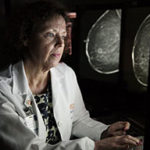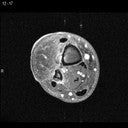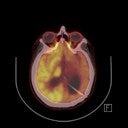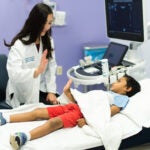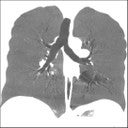Radiology Electives
The UVA Department of Radiology and Medical Imaging offers the following University of Virginia School of Medicine electives. Please note: these links require an active UVA network log-in to access.
General Diagnostic Radiology
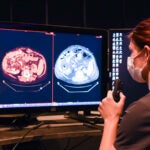 This elective is designed to acquaint the medical student with the modalities and broad field of Diagnostic Radiology. The four-week elective consists of a series of rotations through the department, including three weeks of six core curriculum rotations and several days of elective time where the student can focus on his or her career interests. A two-week abridged version of the rotation is also available.
This elective is designed to acquaint the medical student with the modalities and broad field of Diagnostic Radiology. The four-week elective consists of a series of rotations through the department, including three weeks of six core curriculum rotations and several days of elective time where the student can focus on his or her career interests. A two-week abridged version of the rotation is also available.
Abdominal Imaging
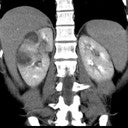 This two-week elective will provide the student with a basic knowledge of the fundamentals of abdominal imaging. The students will have the opportunity to observe image-guided procedures (both CT and ultrasound guided) performed as a part of diagnostic and therapeutic work-ups for neoplastic and non-neoplastic diseases of the abdomen.
This two-week elective will provide the student with a basic knowledge of the fundamentals of abdominal imaging. The students will have the opportunity to observe image-guided procedures (both CT and ultrasound guided) performed as a part of diagnostic and therapeutic work-ups for neoplastic and non-neoplastic diseases of the abdomen.
Angiography & Interventional Radiology
 In this elective, students will be involved in the diagnosis, management, and treatment of patients referred to the Interventional Radiology service and will participate in interventional procedures, film interpretation, consultations and daily rounds.
In this elective, students will be involved in the diagnosis, management, and treatment of patients referred to the Interventional Radiology service and will participate in interventional procedures, film interpretation, consultations and daily rounds.
Diagnostic Neuroradiology
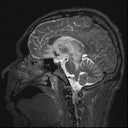 This elective will acquaint the student with the fundamentals of diagnostic Neuroradiology with exposure to CT, MRI and plain film imaging of the brain, head, neck and spine, myelography, and percutaneous diagnostic procedures (biopsies, etc.).
This elective will acquaint the student with the fundamentals of diagnostic Neuroradiology with exposure to CT, MRI and plain film imaging of the brain, head, neck and spine, myelography, and percutaneous diagnostic procedures (biopsies, etc.).
Nuclear Medicine
In addition to the regular lectures in the basics of nuclear medicine imaging and therapy, aka radionuclide imaging and radionuclide therapy provided during first years of medical school, the nuclear medicine section offers a two- and four-week elective to the fourth-year medical students.
Pediatric Imaging
This elective offers medical students an introduction to the importance of imaging and the role of the pediatric radiologist in the pediatric health care system. The physician-in-training will gain experience in radiography, fluoroscopy, ultrasound, CT, and MRI as these modalities apply to the pediatric population.
Radiology and Pathology Correlation
There will be an early morning “huddle”, where we will have pre-procedural case discussions with clinical presentations and imaging findings, approach to the procedure/biopsy, and consideration of which is the best imaging modality to be utilized. Further dialogue including the informed consent form, pre-anesthesia care, family counseling and literature search of interesting cases will also be performed.

